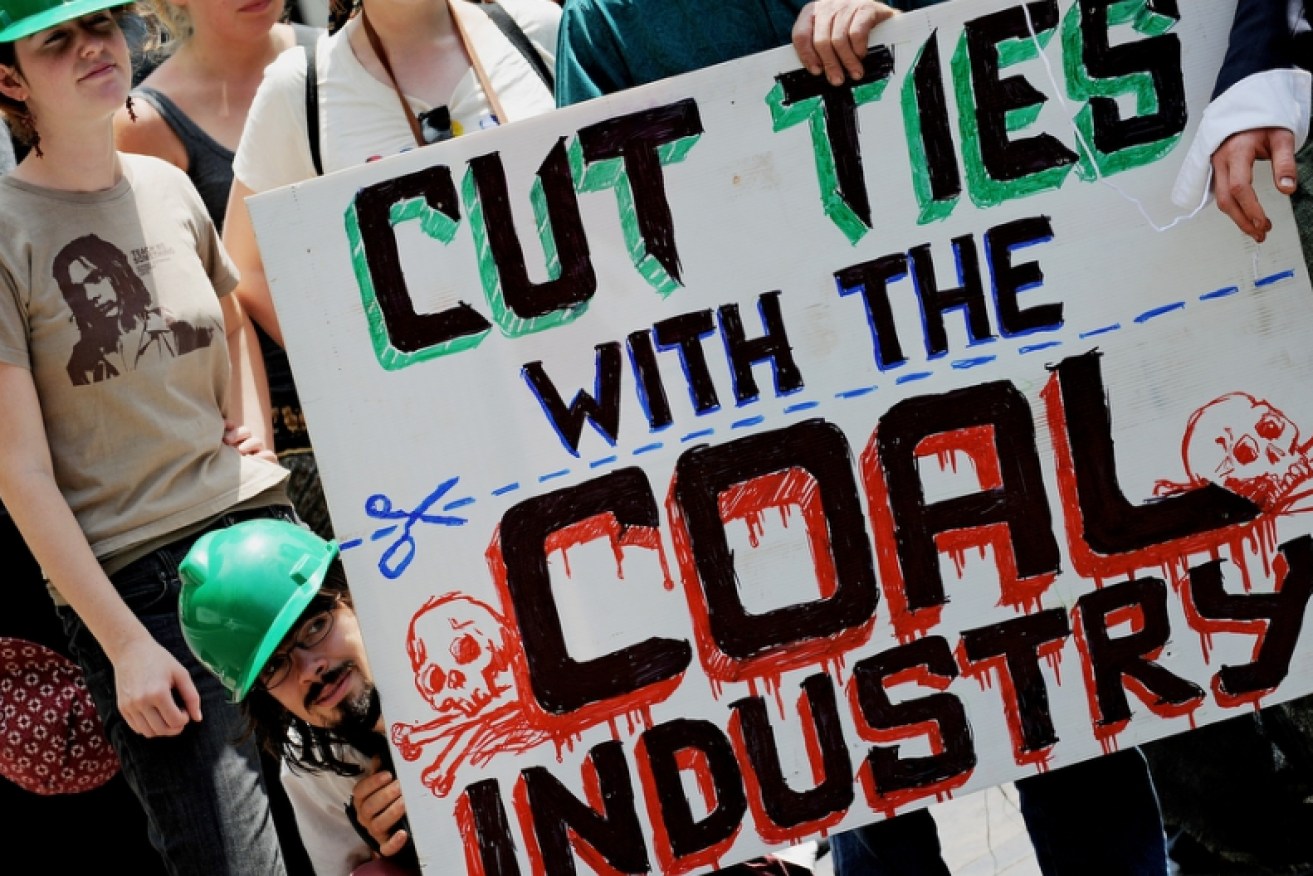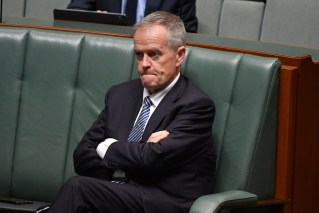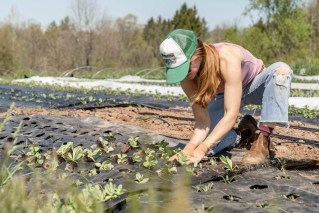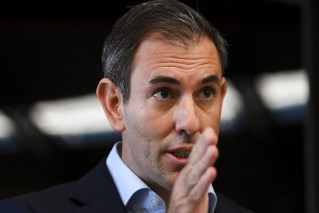Blacklists, threats and stunts: companies reveal the crippling cost of coal links
Coal miners were being blacklisted by insurers, construction company owners threatened with violence and facing collapse while superannuation funds were performing investment stunts to show their green credentials, according to submissions to a federal parliamentary inquiry.


Fossil fuels are heading towards a "valley of death", a think-tank claims. (AAP Photo).
The builder of Adani’s rail line for the Carmichael coal mine, BMD, said environmental and investor activism against businesses involved in, or with coal mining meant it had faced the biggest risk to its business in more than 40 years.
BMD said had been told by its insurance broker that it would not be able to get public liability, environmental protection insurance, director and officer insurance – all of which were needed to fulfil contract obligations.
“This meant that BMD would be uninsured in these areas for the remaining delivery of the projects. A risk so substantial that if it materialised could easily impair the company’s ability to continue to trade,’’ BMD said.
“In 41 years of performing construction work in Australia, BMD had not previously been exposed to such a large and immediate risk.’’
BMD said its owners and families had also been subjected to threats of violence over its work with Adani.
It told the inquiry that it eventually got the insurance for the balance of the business, but was told that the Carmichael rail line and Adani’s Abbot Point coal terminal would be expressly excluded.
It said 33 public liability insurers declined because it was related to Adani’s Australian operating company, Bravus, or an affiliate. Ten refused to provide environmental protection.
“It cannot be the case that a company performing lawful, government-supported works on which the country is dependant, are not supported by the finance and insurance industries that allow these works to be performed,’’ BMD said.
“In response to this, BMD will be forced to make pricing allowances in tendered prices to incorporate the additional risk. This results in higher cost to construct projects and will, in turn, increase the overall cost of infrastructure in Australia.’’
The level of disruption to investment from the activism was detailed in the submission by the Responsible Investment Association which said funds holding $1.1 trillion were using responsible investment strategies relating to environment, social and governance or corporate engagement.
Centennial Coal said banks referred to the “grief to income ratio” that existed in the coal sector.
Centennial also said the company was increasingly reliant on Asian banks because the Australian banks had “limited support” for coal.
New Hope Group, which has been fighting activism for more than a decade over its plans to expand the Acland mine and the consequences of the actions by investment funds and insurers would be dire for regional communities.
New Hope said its insurance had doubled in the past four years and it was becoming increasingly difficult to secure directors’ insurance.
“Superannuation funds have also made a big deal out of divesting their shares in coal companies, largely to pacify the vocal minority of activists,’’ its submission said.
“In NHG’s case, we have seen superannuation funds and major investment firms take a small position in the company only to sell the shares in a very public announcement to create the perception of being a responsible investor.
Industry Super Australia said many superannuation funds were taking steps to protect the long-term value of their portfolios partly by adjusting or exiting their exposure to companies whose impacts on the climate are judged to present risks that are harmful to the interests of its members.
“In short, strategic action now by investors as part of transitioning to a low-carbon economy is not contrary to Australia’s economic interests. It is a vital means of helping to secure our long-term prosperity,’’ it said.
The National Australia Bank said it had seen a shift in climate awareness among its customers for some time.
“Given we want to work constructively with our customers, conversations about ESG risk and sustainability have been embedded in our processes,’’ the bank said.












